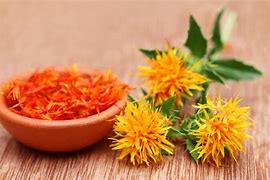Description
Chinese Raspberry (fu pen zi)
What is chinese raspberry? What is it used for?
Chinese raspberry (rubus chingii) is a subspecies of goldenleaf raspberry (rubus ideaus) native to China. It is very similar in appearance to the traditional raspberry plant, often reaching a height of up to seven feet, with green, spade-shaped leaves and thin brown stems. The raspberries themselves are small and range from reddish-yellow to pale brown in appearance, cone-shaped, and have a hard texture. The fruits are used in herbal preparations, and are cleaned and dried before being used.
In traditional Chinese medicine, Chinese raspberries are considered to have sweet and warm properties, and are associated with the Liver and Kidney meridians. They function to tonify and stabilize the kidneys to preserve vital energy, and treat cases of liver and kidney deficiency.
Chinese raspberries contain a variety of organic acids, and are high in carbohydrates and vitamin C. They are often used in herbal remedies to promote visual acuity and clear blurred vision, and can treat a variety of urogenital conditions, ranging from enuresis and frequent urination to impotence.
How much Chinese raspberry should I take?
Most practitioners recommend between 4.5-9 grams of Chinese raspberries, dried and administered orally as a decoction. It can also be made into pills, powders and extracts. For extracts, the recommended dosage is a 5:1 concentrate, at a rate of 1-2 grams per day.
What forms of Chinese raspberry are available?
Chinese raspberry is available in a variety of forms. In addition to dried raspberries, pills, powders, extracts and decoctions are available, usually at Asian markets and herbal shops.
What can happen if I take too much Chinese raspberry? Are there any interactions I should be aware of? What precautions should I take?
While there are no known side-effects from high doses or chronic use, Chinese raspberry should not be taken by patients with fire hyperactivity due to yin deficiency, or those with scanty, dark urine. As of this writing, there are no known drug interactions with Chinese raspberry. As always, make sure to consult with a licensed health care provider before taking Chinese raspberry or any other herbal remedy or dietary supplement.
References
Chen SH, et al. Fu pen zi water-soluble extract solution’s effect on hypothalamus-pituitary-gonad axis in rats. China Journal of Chinese Medicine 1996;21(9):560-562.
Gruenwald J, Brendler T, Jaenicke C (eds.) PDR for Herbal Medicines. Montvale, NJ: Medical Economics Company, pp. 630-631.
Xu ZW, et al. Chemical composition of fu pen zi. Journal of Chinese Materia Medica 1981;12(6):19.















Reviews
There are no reviews yet.